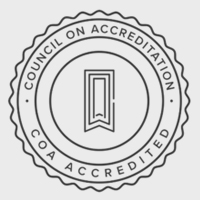Crystal Hall, Community Based and Prevention Services Director
Stories are more than just words; they are the foundation for building connection and empathy, increasing understanding, and moving towards change. In today’s age of posting, texts, shares, chats, snaps and the like, sharing stories is more important than ever.
Stories Lead to Human Connection:
One of the most compelling reasons to share stories is that they put a human face on issues and ideas. Statistics and data are essential to the work we do, but they can feel impersonal. A well-told story, on the other hand, brings experiences to life, making them relatable and memorable. When people see themselves reflected in someone else’s narrative, they are more likely to engage, understand, and take action.
Consider this. If I tell you that the Scholars within the Freedom Schools program decreased their reading gap by 17 months, that’s powerful. However, if I tell you the story of an individual Scholar who came to us feeling like there was no hope, you are now hooked into the story. If I also share with you that his reading scores were more than three grade levels behind his sixth grade peers, you are intrigued. Finally, if I tell you that
through hard work and the relationships he built with Freedom Schools staff, he was able to complete his first chapter book without assistance, well, that hits at the heartstrings!
Stories Help Us to Understand:
Storytelling serves as a bridge between cultures, backgrounds, and viewpoints. When people hear a story that resonates with them, it breaks down barriers and nurtures connections that can bridge the gap across the divide.
Think of a time when you heard a story about a person or a situation that was the polar opposite of you in nearly every way, and yet, you were able to make an empathetic connection. I experienced this when I heard the story of a Native American marathon runner who ran to raise funds and awareness to prevent high-risk behaviors at his reservation in North Dakota. I am not Native American. I am not a man. I am certainly not a runner, but after hearing his story, I “got it.” We are both trying to do what we can to help kids be successful.
Stories Can Help Us Make Change:
History has shown us that powerful stories drive change. A single story has the potential to start a movement, shift perspectives, or encourage individuals to step up and make a difference by volunteering, advocating or simply by increasing self-awareness. Think about the first TEDtalk you listened to, the first time you heard a motivational speaker, or the first book or podcast that really made a connection and got you thinking. Those storytellers used their gift to inspire you to make change.
Agency Leadership here at Tanager recently completed a book discussion featuring Extreme Ownership by Jocko Willink and Leif Babin. While this book was written by ex-military men, the concepts are very applicable to the work we do here at Tanager and will foster changes in individuals, departments, and across the agency. For example, I have modified concepts in the book to change the way I respond to requests made by my teams.
In summary, storytelling plays a crucial role in how we respond to individuals, learn from and build community with those in our lives. No matter what the mode of storytelling is – written words, spoken dialog, or social media – storytelling has the power to connect us.


